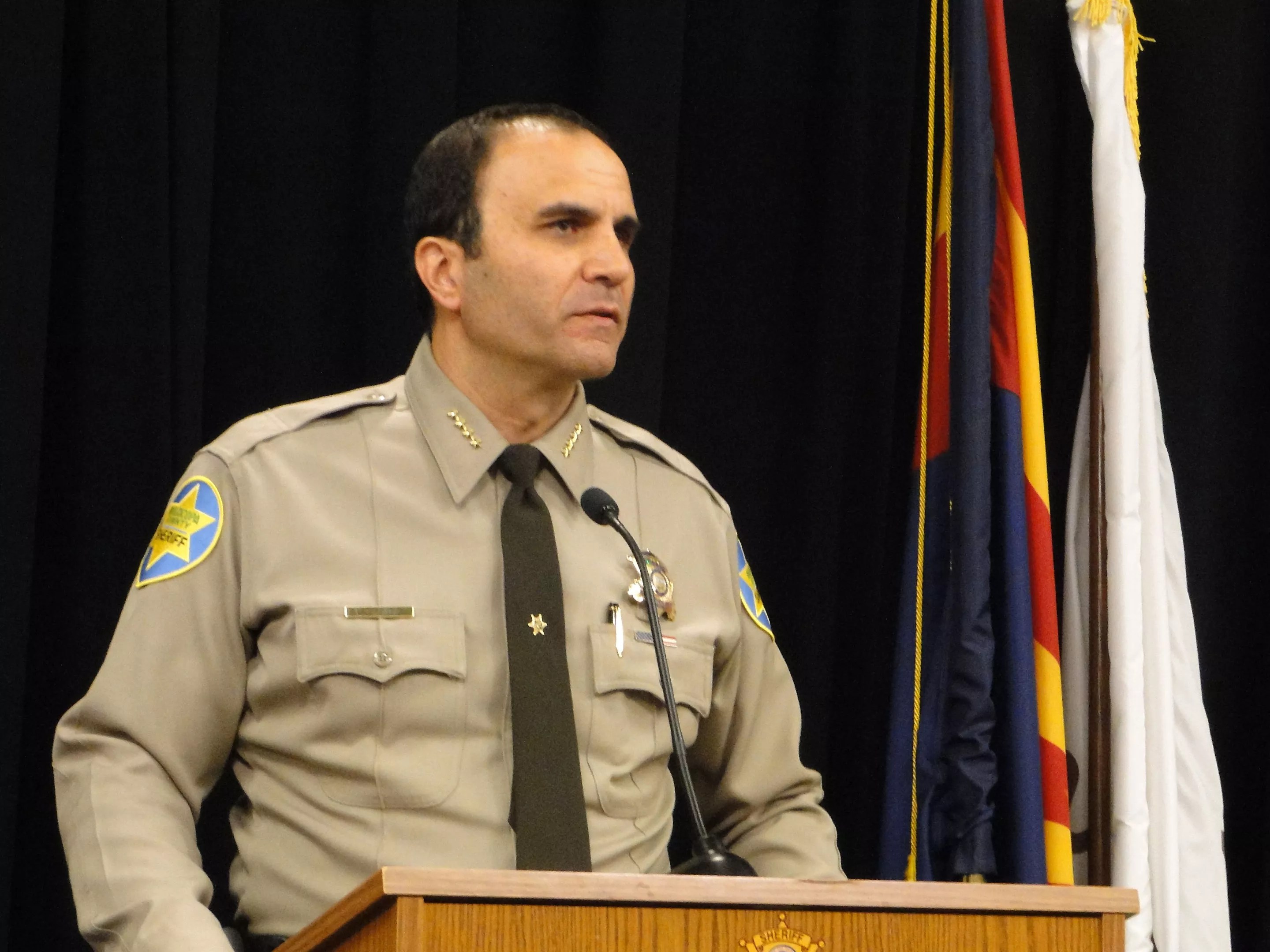
Sean Holstege

Audio By Carbonatix

Maricopa County Sheriff Paul Penzone briefs reporters about lawmakers’ vote to cut funds.
Sean Holstege
Minutes after the legislature voted to eliminate a pool of cash to investigate gangs and drugs in Maricopa County, Sheriff Paul Penzone held a press conference to cry partisan foul.
“All I’m asking for is a voice in these decisions before they are made,” Penzone said, pointing out that no other Arizona county found itself in his boat. “Those responsible to determine how dollars are allocated do not have the expertise that we have.”
Neither had the man Penzone tends to refer to as “my predecessor,” former Maricopa County Sheriff Joe Arpaio. Penzone, a Democrat, defeated the popular Republican in November.
Penzone’s boat was a proposed elimination of $1.6 million of funds from a statewide task force run by the Arizona Department of Public Safety. That task force is called GIITEM, a tortured acronym for Gang & Immigration Intelligence Enforcement Mission.
Broadly speaking, it helps investigate border crimes. Those are the kind of smuggling operations, Penzone pointed out, that are rampant along the Interstate 8 corridor, and throughout southern parts of the county.
Penzone said the cuts will curtail efforts to clamp down on drug and gang activity in such areas. The money also helps develop and share investigative leads from gang members and drug dealers in jails and to share them with task force partners.
“The funding will absolutely have an effect on operations,” Penzone said. “The negative impact on this office was not in the public interest.”
Earlier in the day, some lawmakers said they supported the cuts because the new MCSO under Penzone was not as serious about enforcing immigration, they told media outlets.
Penzone rejected that thinking.
“It’s a statement that has no basis,” he said, calling the reasoning excuses. “We are restricted and prohibited from being involved in immigration enforcement due to the actions of my predecessor.”
And by a certain federal judge whom Penzone chose not to point out.
Also worth pointing out is some context. The MCSO commands a combined budget, from all sources, of around $353 million and employs about 3,300 people. It claims to be the third-largest sheriff’s department in the country.
According to the most recent DPS annual report, that agency’s criminal investigations division, with the help of GIITEM, seized 11.5 tons of pot, 102 pounds of heroin, 195 pounds of cocaine, and 772 pounds of meth.
Penzone smelled a political rat in the Republican-controlled statehouse kitchen.
“This action today was absolutely partisan by nature,” he said.
“What’s most distressing about this decision and this effort to undermine our operations,” he added, “was that it was placed in the 11th hour of the budget … and there was absolutely no discussion with law enforcement leaders.”
The other 11 Arizona sheriffs came to his side. In a statement handed to the press, the Arizona Sheriff’s Association said it was “extremely concerned about the trend of exorbitant spending on state programs, while ignoring the ways in which Arizona’s state budget fiscally punishes counties.”
“Counties are left with growing responsibilities and few resources to meet their budgetary obligations and efficiently provide basic services to county residents, including public safety and law enforcement,” the association said.
Penzone had a word of advice for his voters, whom he said would be most hurt by the cut. Repeating his vows to run a nonpartisan sheriff’s office, he said anyone who was uncomfortable with politicians making public safety decisions should remember that at the ballot box.